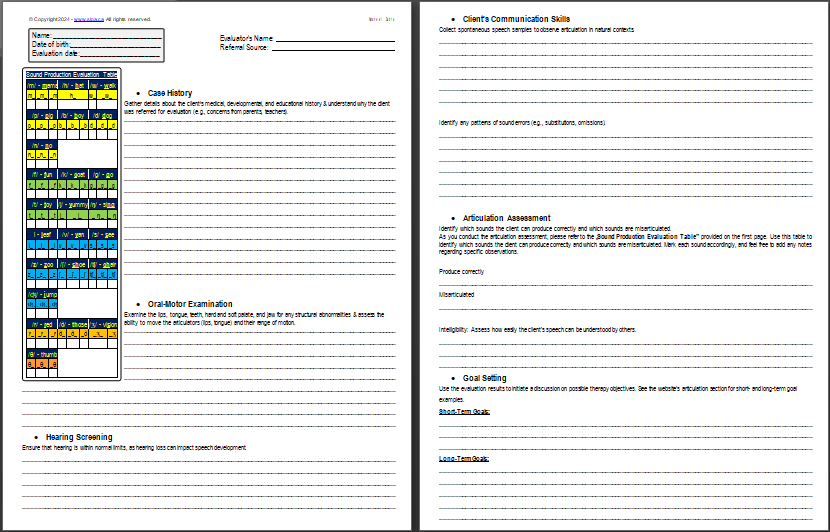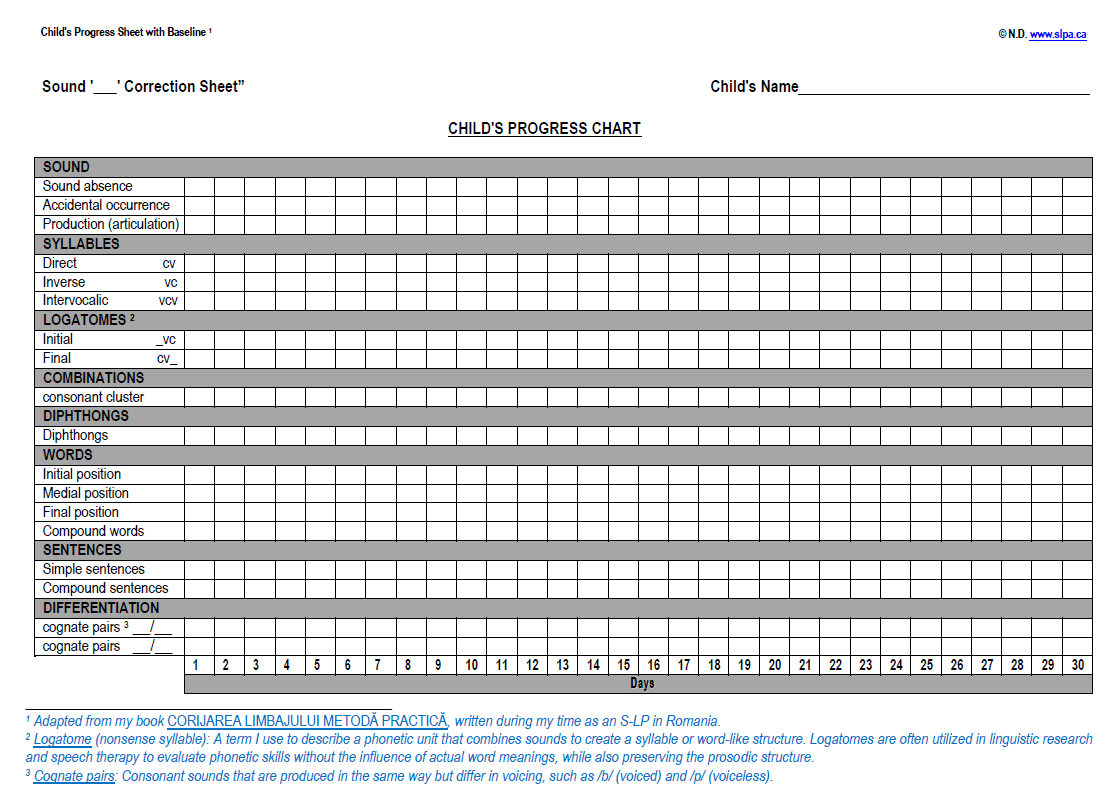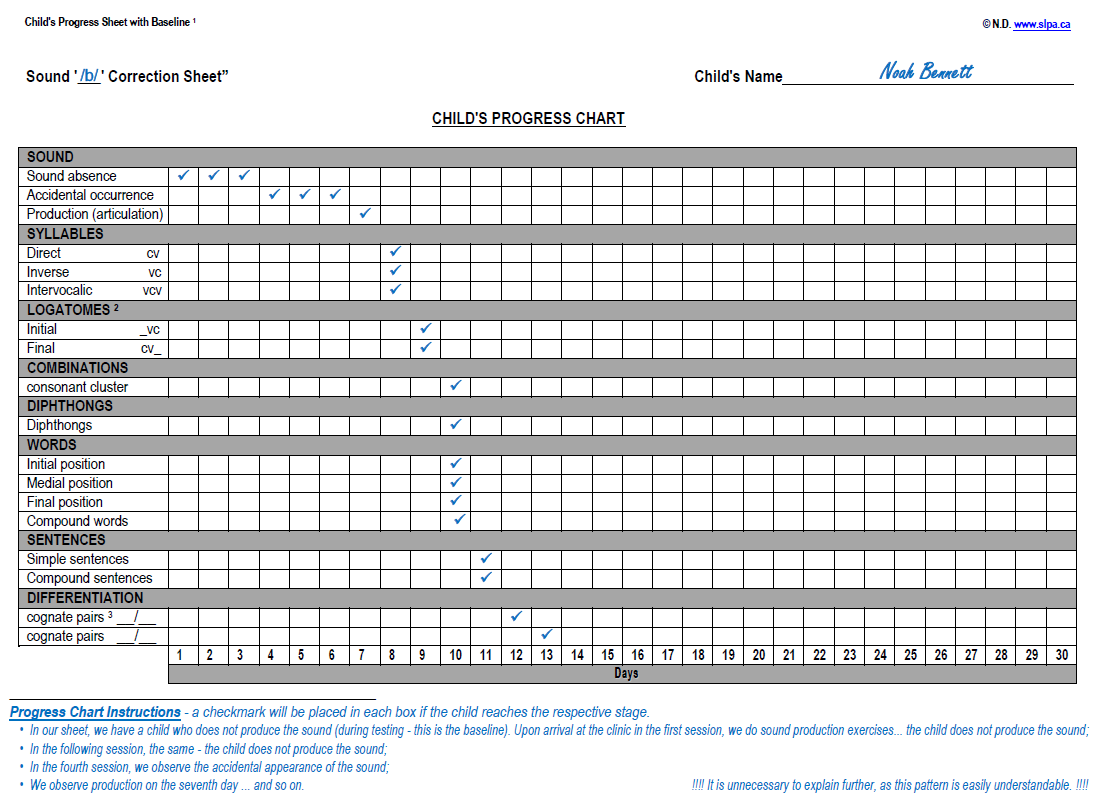English
- Details
- Written by: Natanael Dobra
- Category: English
- Hits: 1096
What Are Cookies?
Cookies are small files downloaded to your computer to enhance your experience on websites, including Speech-Therapy.ca. They serve several purposes:
- Remember Preferences: Cookies help retain your preferences during your visits.
- Analyze Usage: They provide insights into how users navigate the website, helping identify popular content.
- Secure Logins: Cookies ensure secure logins and may contain information like your email address and name, which is only accessible to Speech-Therapy.ca.
Advertising Cookies
Some cookies manage the advertisements you see on our website. For a general overview of cookies, you can refer to the Wikipedia article on HTTP Cookies.
How Speech-Therapy.ca Uses Cookies
We use cookies to enhance website functionality and user experience. While disabling cookies is an option, it may limit certain features. It’s recommended to keep cookies enabled for optimal use.
Disabling Cookies
You can adjust your browser settings to disable cookies (consult your browser's help section for instructions). However, be aware that this may affect functionality on our site and others.
The Cookies We Set
Our website uses cookies to store and retrieve information that helps improve your browsing experience. This data is not personally identifiable but allows for a more personalized experience.
Understanding Cookies
When you visit Speech-Therapy.ca, cookies are created to track your activity and preferences. This process aims to enhance the website's performance and reduce repetitive information requests.
Third-Party Cookies
We also use trusted third-party cookies, such as Google Analytics, to track site usage, including time spent on pages. This data helps us create engaging content. For more information on Google Analytics cookies, visit the official Google Analytics page.
More Information
If you have any questions or need further clarification, feel free to contact us.
- Details
- Written by: Natanael Dobra
- Category: English
- Hits: 2060
Before you begin, please take a moment to read through this guide on how to effectively work with my materials. Following the outlined sequence will help you achieve the best results and simplify your intervention for the articulation of any sound available in this section. Your attention to these details is key to optimizing the therapeutic process.
- During an initial evaluation, an SLP examines various aspects of the child's speech and language development, considering their native language. This includes the structure and function of the face, mandible, maxilla, teeth, lips, cheeks, tongue, and palate. They assess oral motor skills, speech sound production, language abilities in both the native and any secondary languages, and fluency. The SLP also checks hearing, breathing, voice quality, and considers feeding, swallowing, and social communication skills. Developmental history, cognitive abilities, and parental concerns are discussed to form a complete picture of the child’s needs
Articulation Evaluation Form
The evaluation form is a comprehensive tool for SLPs to assess a client’s speech articulation. It includes sections for the evaluator's information, sound production analysis using a detailed table, and thorough documentation of the client’s case history, oral-motor function, hearing, and communication skills. The form guides the evaluator to identify correct and misarticulated sounds, assess speech intelligibility, and use the gathered data to set short- and long-term therapy goals, with additional resources available on the website.

Examples of Short-Term and Long-Term Goals
Short-Term Goal(s):
- The client will produce the /s/ sound in the initial position of words during flashcard activities.
- The client will produce the /s/ sound in the final position of words during flashcard activities.
- The client will produce speech sounds /s/ accurately in words during spontaneous speech in different settings.
Long-Term Goals
- The client will consistently produce speech sounds correctly in words during spontaneous speech
- The client will consistently produce the /s/ sound accurately in words during spontaneous speech across various settings, demonstrating improved speech clarity and communication effectiveness
OBS.
You may choose to rewrite the same goals in a behavioral, performance-objective form if you wish. This means expressing the goals in a way that clearly defines the expected behavior, the conditions under which it should occur, and the criteria for success. This format makes the goals more measurable and specific.
- The client will correctly produce the /s/ sound in the initial position of words during flashcard activities, achieving 80% accuracy across two consecutive sessions.
- The client will correctly produce the /s/ sound in the final position of words during flashcard activities, achieving 80% accuracy across two consecutive sessions.
- The client will accurately produce speech sounds in words during spontaneous speech with 90% accuracy across three different contexts or settings.
Create an intervention objective based on a short-term goal
An intervention objective outlines the activities or strategies that the client will engage in to practice and improve a targeted skill, ensuring that the goal is measurable and focused on the client’s progress.
Short-Term Goal(s):
- The client will produce the /s/ sound in the initial position of words during flashcard activities.
Intervention Objective:
- During a session, the clinician will present a set of flashcards, each featuring a picture of an object that starts with the /s/ sound (e.g., sun, sock, snake). The client will take turns selecting a flashcard, pointing to the image, and saying the word aloud. The clinician will provide feedback and encouragement to ensure accurate production of the /s/ sound.
Click here to download "Articulation Evaluation Form"
Child Progress with Baseline Form
- Before starting, be sure to download the 'Child Progress with Baseline' and the instructions for each sound. You will need these documents as you begin the therapeutic process.

Click here to download "Child-Progress-with-Baseline"

Click here to download "Child-Progress-with-Baseline-Instructions"
Sound Articulation Assessment Flashcards

Click here to download "Flashcards-for-Sound-Articulation-Evaluation"
The Traditional Articulation Approach
The Traditional Articulation Approach emphasizes the precise positioning of the articulators to improve speech sound production. By employing a structured developmental sequence, this method engages clients in targeted activities designed to remediate specific sound errors. Through consistent practice and feedback, the approach fosters clarity and intelligibility in speech, ultimately helping individuals communicate more effectively. This systematic process not only supports sound acquisition but also encourages the generalization of correct speech patterns into everyday conversation.
This page is currently under construction. Please check back soon, as we will provide detailed explanations and resources here.
- Details
- Written by: Natanael Dobra
- Category: English
- Hits: 1473
Welcome to the Rhyming Lab:
Exposure to Rhymes and Phonological Patterns Through Interactive Exercises
From Series 3
Don't forget! You can download the PDF from the 'Rhyming Words - Series 1-15' menu to work offline and practice rhyming words anytime!
- -an: man, fan, plan - the rhyme pattern involves the /æn/
- Simple Rhymes: can, fan, man, pan, tan, van…
- Cluster & Multi-syllabic Rhymes: flan, plan, dustpan, snowman...
- Click on the link to open and practice rhyming exposure with each exercise in the series!
- –ank: bank, tank, rank - the rhyme pattern involves the /æŋk/
- Simple & Cluster Rhymes: bank, tank, sank, crank, flank…
- Click on the link to open and practice rhyming exposure with each exercise in the series!
- –ap: cap, map, trap - the rhyme pattern involves the /æp/
- Simple Rhymes: cap, lap, nap, map…
- Cluster Rhymes: snap, wrap, trap, clap…
- Click on the link to open and practice rhyming exposure with each exercise in the series!
- -ar: car, star, far - the rhyme pattern involves the /ɑːr/
- Simple Rhymes: bar, car, far, jar…
- Cluster & Multi-syllabic Rhymes: star, scar, cigar, guitar, jaguar, radar…
- Click on the link to open and practice rhyming exposure with each exercise in the series!
- -ash: cash, flash, rash - the rhyme pattern involves the /æʃ/
- Details
- Written by: Natanael Dobra
- Category: English
- Hits: 1484
Welcome to the Rhyming Lab:
Exposure to Rhymes and Phonological Patterns Through Interactive Exercises
From Series 2
Don't forget! You can download the PDF from the 'Rhyming Words - Series 1-15' menu to work offline and practice rhyming words anytime!
- -ain/ane: rain, pain, train - the rhyme pattern involves the /eɪn/
- Simple Rhymes: lane, mane, cane, pane…
- Simple & Cluster & Multi-syllabic Rhymes: cane, crane, airplane, hurricane...
- Simple Rhymes: gain, pain, rain…
- Cluster Rhymes: brain, chain, drain, grain, train, Spain...
- Click on the link to open and practice rhyming exposure with each exercise in the series!
- –ake/ache: cake, snake, bake - the rhyme pattern involves the /eɪk/
- Simple Rhymes: bake, cake, lake, rake, hake, wake…
- Cluster Rhymes: brake, drake, shake, snake, ...
- Simple & Multi-syllabic Rhymes: ache, headache, toothache...
- Click on the link to open and practice rhyming exposure with each exercise in the series!
- –ale/ail: pale, whale, tale - the rhyme pattern involves the /eɪl/
- Simple Rhymes: fail, hail, jail, nail, sail, mail, pail, tail…
- Cluster Rhymes: snail, trail, quail…
- Simple Rhymes: bale, gale, sale, male, vale…
- Cluster Rhymes: stale, scale, whale…
- Click on the link to open and practice rhyming exposure with each exercise in the series!
- -all: ball, wall, small - the rhyme pattern involves the /ɔːl/
- Simple Rhymes: all, ball, call, fall, hall, mall, wall, tall…
- Cluster & Multi-syllabic Rhymes: small, meatball, gumball…
- Click on the link to open and practice rhyming exposure with each exercise in the series!
- -am: jam, clam, ham - the rhyme pattern involves the /æm/
- Simple & Cluster Rhymes: ham, jam, ram, dam, exam, cram…
- Click on the link to open and practice rhyming exposure with each exercise in the series!
- Details
- Written by: Natanael Dobra
- Category: English
- Hits: 1462
Welcome to the Rhyming Lab:
Exposure to Rhymes and Phonological Patterns Through Interactive Exercises
From Series 1
Don't forget! You can download the PDF from the 'Rhyming Words - Series 1-15' menu to work offline and practice rhyming words anytime!
- -ab: cab, grab, slab - the rhyme pattern involves the /æb/
- Simple Rhymes: cab, dab, gab, jab, lab, tab…
- Cluster Rhymes: crab, flab, grab, scab, slab, stab...
- Click on the link to open and practice rhyming exposure with each exercise in the series!
- –ack: back, sack, track - the rhyme pattern involves the /æk/
- Simple Rhymes: back, yak, jack, pack, rack, sack…
- Cluster Rhymes: black, clack, crack, shack, slack, snack...
- Click on the link to open and practice rhyming exposure with each exercise in the series!
- –ad: sad, mad, glad - the rhyme pattern involves the /æd/
- Simple Rhymes: cad, bad, dad, mad, sad, tad…
- Cluster Rhymes: brad, grad, glad, scad…
- Click on the link to open and practice rhyming exposure with each exercise in the series!
- -ag: bag, tag, rag - the rhyme pattern involves the /æɡ/






